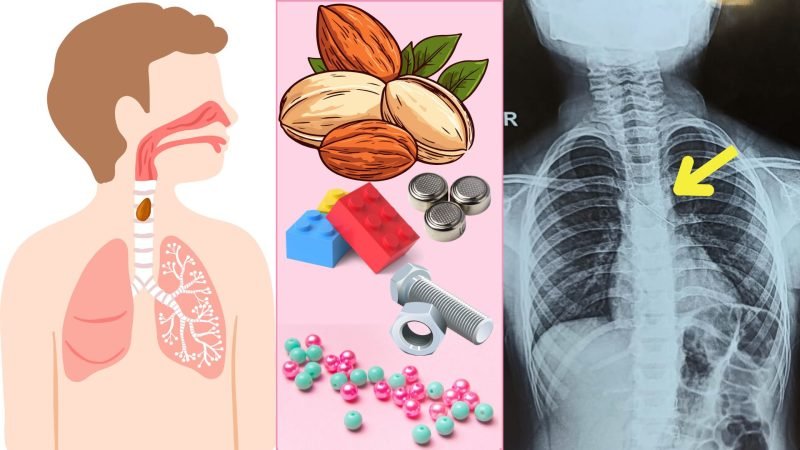

Foreign Body Aspiration
Why are toddlers at increased risk of foreign body aspiration?
Toddler airway is still developing and maturing. The swallowing skills are still immature.
They do not have molar teeth that help chewing the food and hence, tend to gulp down big chunks without chewing that can get stuck in the throat.
Toddlers try to explore everything with their mouths and tongues. They have a habit of putting every object that interests them in their mouth and thus are at an increased risk of choking especially if they are left unsupervised.
Toddlers also are always on the go. Jumping, running, laughing, crying with small onjects in mouth increases the risk of aspiration.

What are the clinical indicators of foreign body aspiration?
Children with an episode of choking are at an increased risk of foreign body aspiration especially if that object has not come out by patting the back or performing the Heimlisch maneuver.
Children often have the following symptoms:
